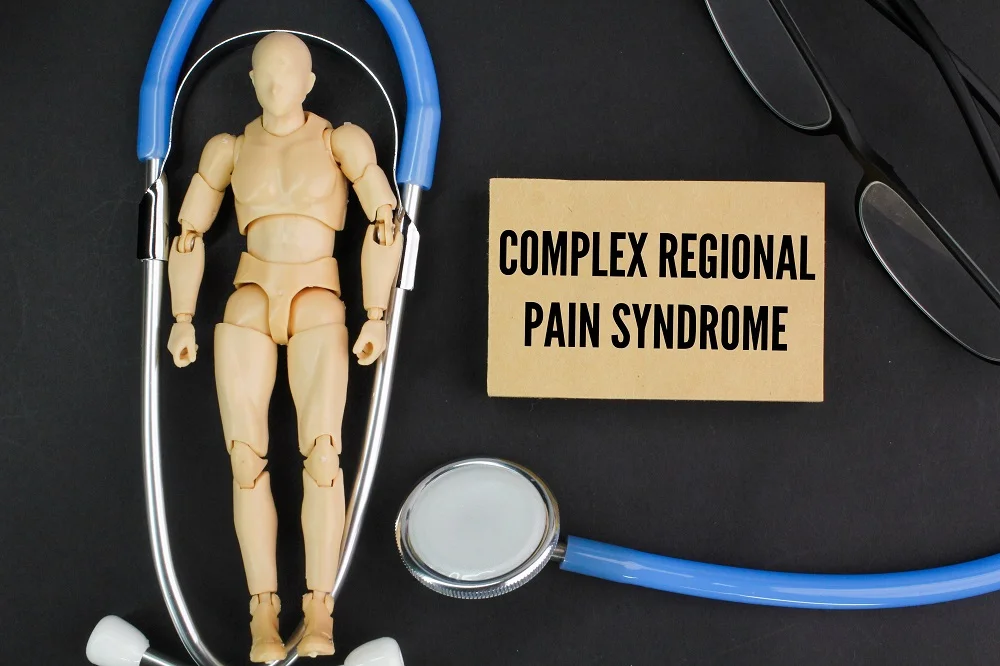Complex regional pain syndrome (CRPS) is a chronic pain condition that sometimes arises after certain injuries. There is no cure, but the pain can be managed and treated. Even so, many people who live with CRPS are unable to work because of the intense pain they deal with on a daily basis. You might qualify for certain benefits if you can no longer work, but only if your condition is considered a disability.
CRPS may be considered a permanent disability because it often prevents people from working and the condition is lifelong. However, this is not always enough to be considered a disability in the eyes of the law. An attorney can help you determine if your CRPS diagnosis may be a disability for the purpose of obtaining benefits or compensation. Whether your condition is disability may depend on what benefits you apply for. For example, a disability for Workers’ Compensation might differ from one for federal disability benefits. If you cannot work due to CRPS, talk to an attorney about whether you qualify for benefits.
Call the Law Office of John J. Sheehan at (617) 925-6407 to get a private review of your case for free.
Complex Regional Pain Syndrome as a Permanent Disability in Massachusetts
Complex regional pain syndrome (CRPS) may be a permanent disability. The condition is often lifelong, and patients often live with physical pain for years or forever. On top of that, the pain can be so severe that patients are unable to work, enjoy hobbies, or go about their lives as they had before they developed CRPS. In this way, most people would consider CRPS a permanent disability. However, this commonsense approach does not mean that your condition is a permanent disability in the eyes of the law.
Whether your condition is a permanent disability in a legal sense depends on your circumstances. Not every case of CRPS is automatically considered a permanent disability. While the condition is often permanent, it is not always totally disabling, and you should speak to your doctor and a lawyer about your diagnosis. Additionally, the pain varies from person to person. Some can live with the pain with minimal adjustments to their daily lives. Others must give up their jobs and other things they once held dear. Our Massachusetts complex regional pain syndrome lawyers can review your medical information and details about your employment to help you get compensation or benefits.
Why CRPS May Be Considered a Permanent Disability in Massachusetts
Determining whether a condition is a permanent disability depends on what kind of legal action you take. In Massachusetts, people who are unable to work because of a medical condition may be entitled to Workers’ Compensation benefits if the initial injury is work-related. Alternatively, you might be eligible for Social Security Disability Insurance (SSDI) benefits. Both require that claimants or applicants have disabilities, but what constitutes a disability might differ between these situations.
Massachusetts Workers’ Comp
According to Workers’ Compensation laws in Massachusetts, a person may be eligible for benefits if they experience a work-related injury that prevents them from working for at least 5 days. These days do not have to be consecutive to make you eligible. The law does not impose a strict definition of a disability. It is enough that whatever condition you have prevents you from working. It is arguably more important that you are an employee within the law’s definition. Under Mass Gen. Laws Ch. 152 § 1(4), an employee may be anyone working in service to another under an implied or express agreement or contract of hire. This broad definition includes most workers who are not specifically excluded or independent contractors.
CRPS likely fits the definition of a permanent disability, as many people have to quit their jobs and can never return because of the chronic pain.
Federal Disability Benefits
If your injury was unrelated to work, you might be eligible for SSDI benefits. These are federal benefits, and we must follow the federal law regarding how a disability is defined. According to 20 C.F.R. § 404.1505(a), the law defines a disability as a condition that leaves you unable to perform “substantial gainful activity.” The condition must be medically determinable or diagnosed and last for no less than 12 months or be expected to end in death. Generally, CRPS checks all these boxes.
Substantial gainful activity here refers to your ability to work. Work may be substantial if it requires physical or mental effort. Even standing behind a counter or performing work you feel is simple or easy might still be considered substantial. Gainful activity is done for profit or pay. Even if profits are not realized, or pay is small, the work may still be considered gainful.
What to Do if You Cannot Work in Massachusetts Due to Complex Regional Pain Syndrome
If you can no longer work because of complex regional pain syndrome, speak to an attorney as soon as possible about how you might receive potential benefits or compensation. Your medical records and information from your doctors may be crucial in this determination, but there is a good chance that your diagnosis is considered a permanent disability.
If your initial injury that led to CRPS happened while you were working, you might be covered by Workers’ Compensation. If your condition truly is a permanent disability, you might be entitled to permanent and total incapacity benefits under Mass. Gen. Laws Ch. 152 § 34A, which include regular payments worth two-thirds of your average weekly wages.
If you were hurt outside of work, you may be eligible for federal disability benefits. Since CRPS is often a lifelong chronic condition, it likely fits the definition of a permanent disability set by federal law. While we must prevent medical evidence supporting your claims, you may be entitled to SSDI benefits.
Speak to Our Massachusetts Complex Regional Pain Syndrome Attorneys Today
Call the Law Office of John J. Sheehan at (617) 925-6407 to get a private review of your case for free.
Tell us your story We’ll Handle the Rest
You deserve to move forward. Let’s work together and build your case for maximum compensation. Speak with a member of our team today.


John J. Sheehan
Managing Attorney
Attorney Sheehan is fluent in Spanish and is privileged to represent many clients from the Latin American community in the Greater Boston area.
Tell us your story We’ll Handle the Rest
You deserve to move forward. Let’s work together and build your case for maximum compensation. Speak with a member of our team today.



















































